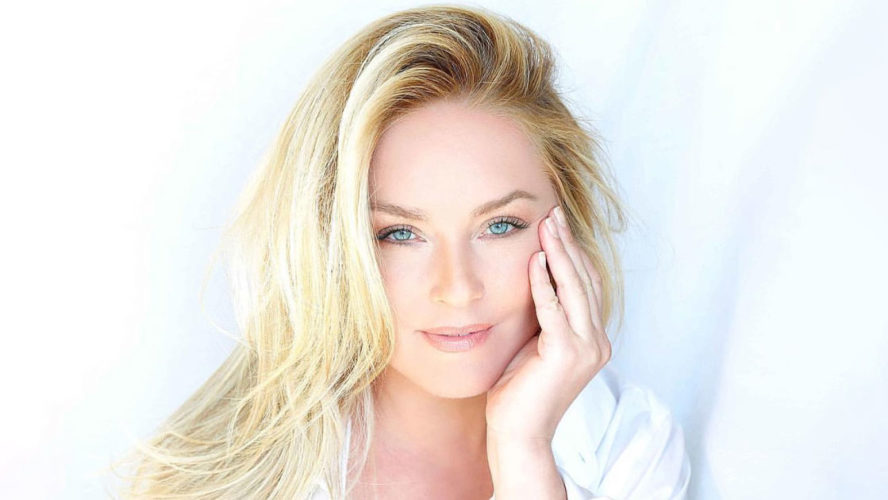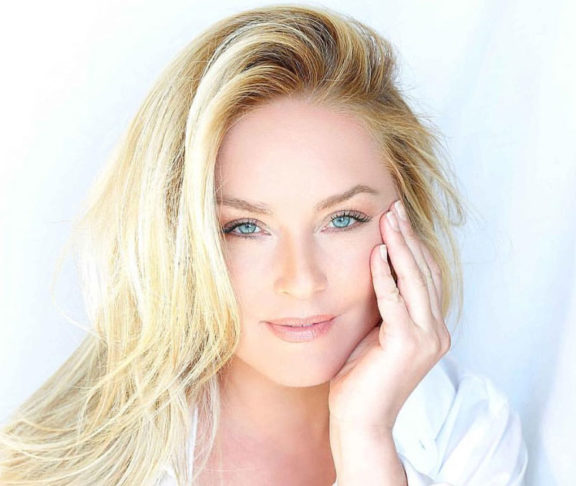Elisabeth Rohm, actor, American Heart Association volunteer, and co-founder of The RESPECT Project, knows the statistics about women, self-care, and heart disease. But more than that — she’s lived it.
“Women, mothers, and wives — we are the ones constantly doing and enduring a lot of stress, but we don’t do the people we love justice if we don’t take care of ourselves,” Rohm says.
The actor and advocate was touched by heart disease early in life, losing her father at age 10 to triple bypass, then her mother and beloved aunt when she was a young mother. Rohm says she thinks these deaths might have been avoided if they’d paid more attention to their own health.
“When I was 32, my mom had a major heart attack and died at 60 years old. I think she’d very much let her health go,” says Rohm. “She’d struggled with her weight, she was smoking, and she just wasn’t taking care of herself. Then two years later, my aunt Lori, her sister — also very stressed, weight issues, health issues, asthma from prior smoking, and so forth — also died from a heart attack.”
Rohm says these three pivotal losses are what inspired her work with the American Heart Association’s Go Red for Women movement and lifelong mission to prevent other women from making the same mistakes. “I live in a state of not only trying to be balanced with my health and well-being, but also wanting to advocate for others to take care of themselves because I know what it’s like to be the one that experiences that loss. I don’t want other families to be ripped apart because of heart disease.”
Making yourself a priority
Self-care can be especially difficult for women, who are socially conditioned to care for everyone around them before focusing attention on themselves. “I know what it’s like to juggle work and children and all of that,” Rohm notes, “and your health, your exercise for the day, your eating habits, or your stress in general…we’re the last thing we take care of.”
According to Rohm, the COVID-19 pandemic introduced an added level of stress and anxiety, but it also offered an opportunity for many women to rethink their approach to self-care. “We’ve endured a lot of stress and a lot of PTSD around what’s happened to us the last two years,” she says. “But on the flip side, we got more time with ourselves, with our families, and to have more balance in our lives.”
Rohm says she takes advantage of every opportunity to slow down. “Meditation, yoga, face masks — whatever it may be. I like taking a walk in silence and just really slowing down my heart rate.”
Be prepared
In addition to advising people to maintain good nutrition and prioritize exercise as well as periods of rest, Rohm says one practical thing everyone can do to reduce incidents of heart attack deaths is to learn CPR, even appearing in some American Heart Association CPR educational content. “Both my mother and my aunt were with their spouses when they started to have cardiac arrest, and neither husband was able to practice CPR,” Rohm nots. “Within that short window of time, they could have redefined that narrative and were unable to. I’ve spent a lot of time since my mom died getting out there and educating people on CPR. Take the initiative to either be CPR certified or just understand the basics.” She says that if someone you love has a cardiac incident in front of you, that makes you the first responder, and you should be as well-equipped as you can to address the situation.
More than anything, Rohm wants women to think of taking the time to care for themselves as a loving act. “There are people who love you and are counting on you, but you shouldn’t be a casualty to meet that need, because loving and caring for your family shouldn’t make you not care for yourself,” she says. “Most of us think we need to self-sacrifice in order to love others and that’s not loving to others because, statistically, if we don’t care for ourselves, we will be the first to go.”



